Producer’s Pride Universal Poultry Pen, 15 Chicken Capacity, 8 ft. x 8 ft.
Give your chickens room to flap their wings with the Producer’s Pride Universal Poultry Pen. Each universal poultry pen is made of rust-resistant powder-coated steel and designed to keep even the strongest predators out. In addition to a predator proof latch, this incredible chicken coop contains a durable door that is compatible with most pad locks.
Give your chickens room to flap their wings with the Producer’s Pride Universal Poultry Pen. Each universal poultry pen is made of rust-resistant powder-coated steel and designed to keep even the strongest predators out. In addition to a predator proof latch, this incredible chicken coop contains a durable door that is compatible with most pad locks. This high quality 8 feet x 8 feet walk-in poultry pen offers a large roaming space while providing true protection from predators.
- Contains a special knock-out panel that allows you to directly attach it to your chicken’s coop
- Made of rust-resistant powder-coated steel and designed to keep even the strongest predators out
- Large entry door for easy access
- Contains a durable door that is compatible with most pad locks
- Easy assembly
- Removable wire panel
- Dimensions of the chicken pen: 8 feet x 8 feet x 6.7 feet
- Accommodates up to 6 chickens
- Hard mesh roof is predator proof
- High quality walk-in poultry pen offers a large roaming space while providing true protection from predators
- Easy to go inside and clean
- Connects to other pens to create a larger pen (sold separately)
Additional information
| Door Height | 6 ft. |
|---|---|
| Door Width | 30 in. |
| Features | Caged Exterior, UV Resistant |
| Primary Finish | Powder-Coated |
| Location of Doors | Side |
| Number Of Doors/Openings | 1 |
| Number Of Levels/Stories | 1 |
| Product Height | 6.7 ft. |
| Product Length | 8 ft. 4 in. |
| Product Weight | 264 lb. |
| Product Width | 8 ft. |
| Recommended Number of Animals | 15 |
| Roof Material | Steel |
| Manufacturer Part Number | CR0808 |

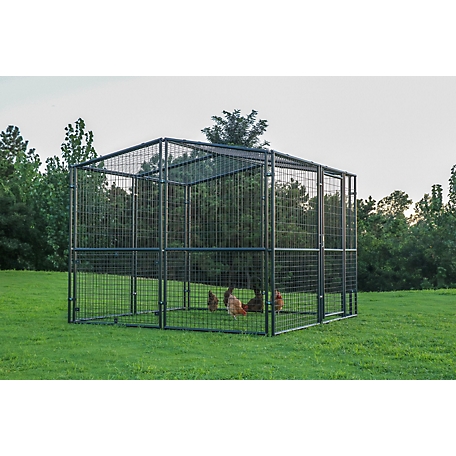
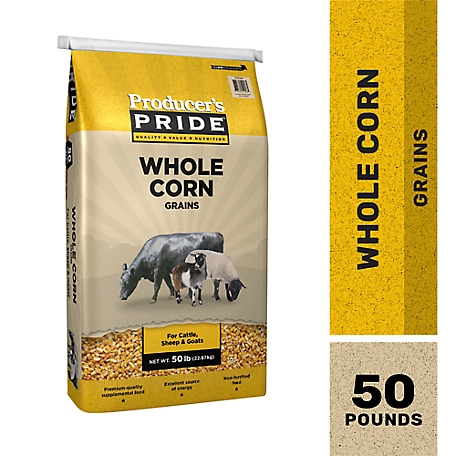

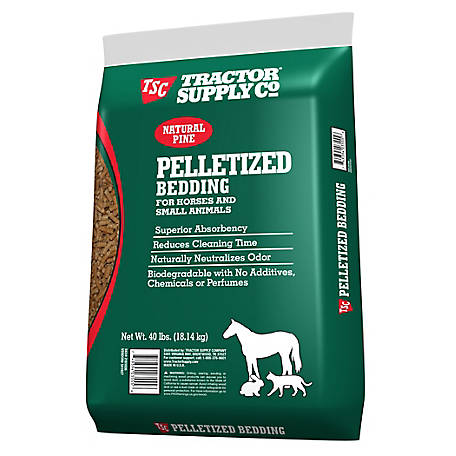

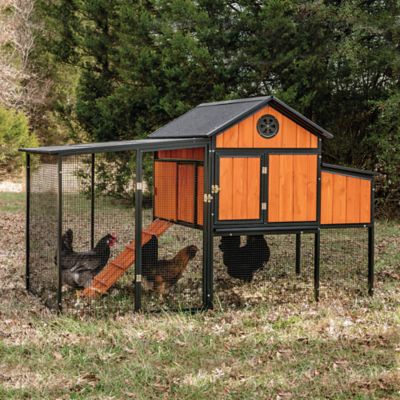
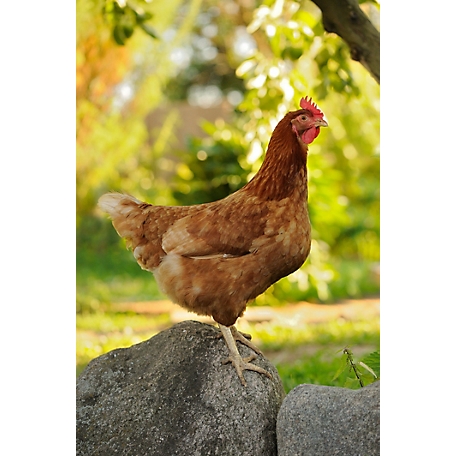
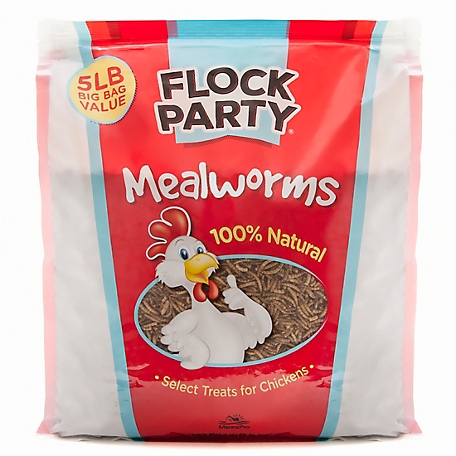
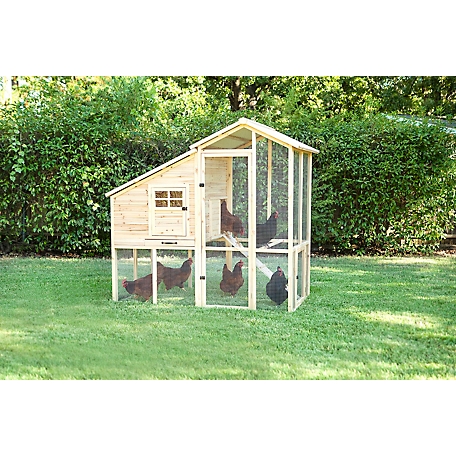
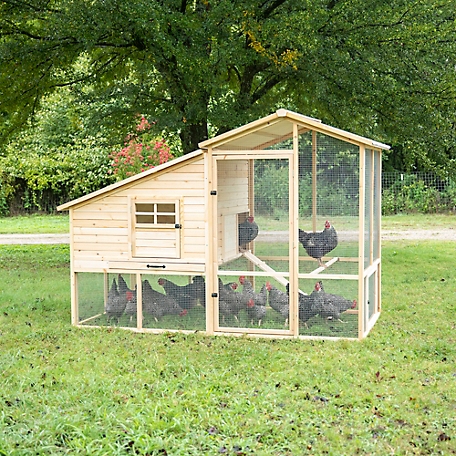
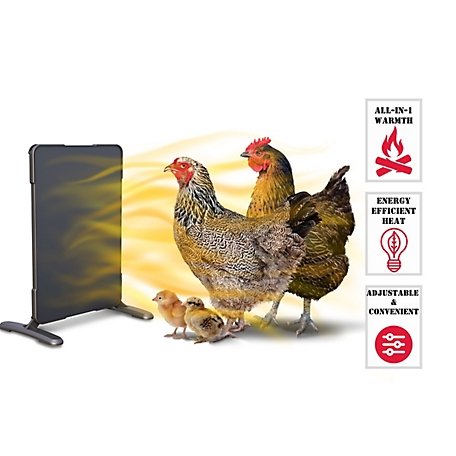
by Mike
I like the design of the structure with the panels going together rather quickly. I was able to complete the majority of the pen by myself and only needed assistance with the final roof panels.
by Lori
W as y to out together and sturdy!